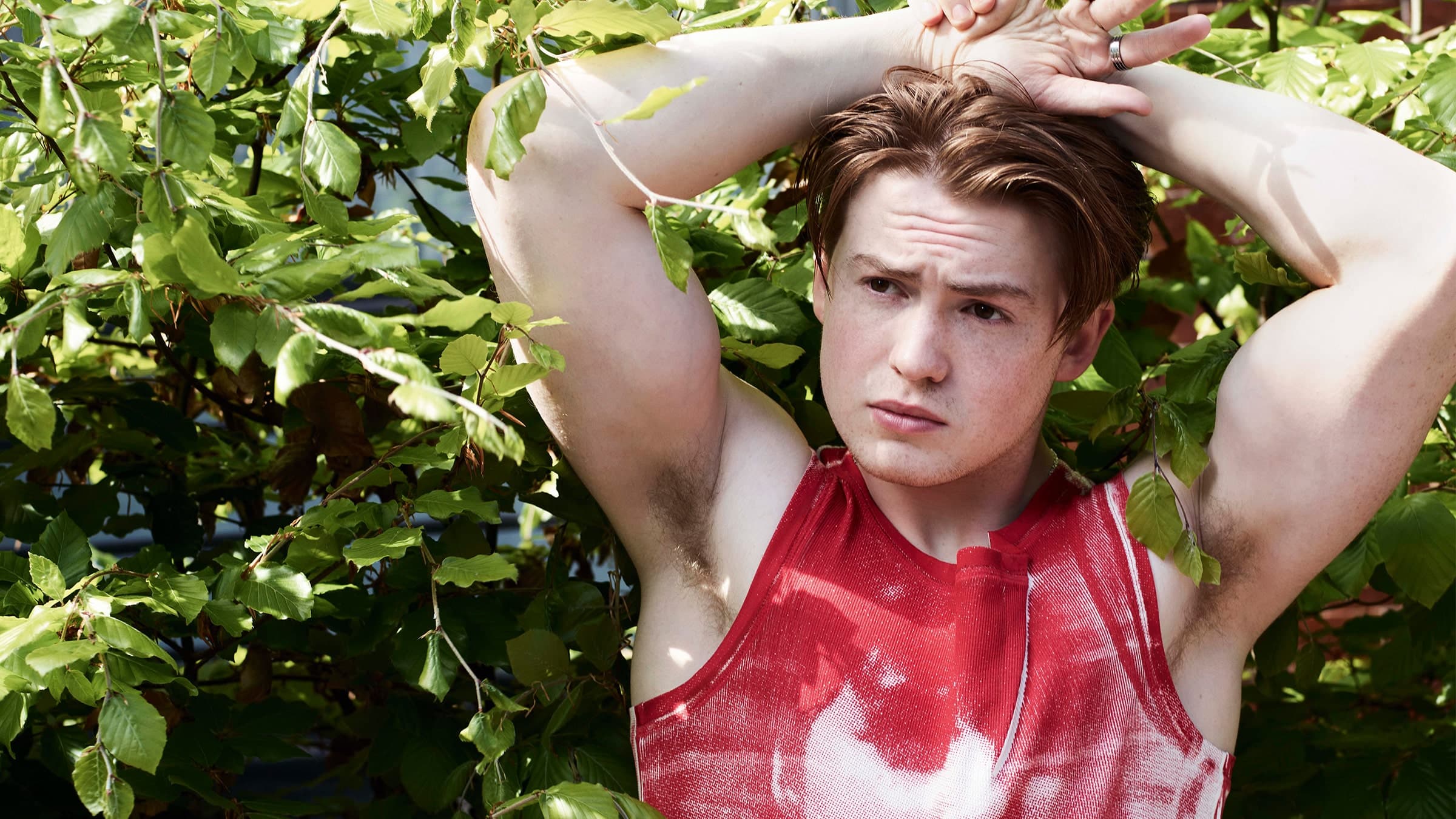The very real repercussions of forcing people to come out

If you’re even slightly tuned into social media, you’ll have seen the news today that Heartstopper star Kit Connor has come out as bisexual on Twitter. His post, however, explains that his choice to speak openly about sexuality was barely a choice at all, but was instead the side-effect of repeated vitriol across social media, which accused him of queerbaiting.
Queerbaiting, if you didn’t know, is described as a marketing technique in which actors/musicians/influencers hint at, but then do not depict, same-sex or other LGBTQIA+ representation in order to attract an LGBTQIA+ or straight ally audience.
Accusations of queerbaiting have become all too regular these days, with the likes of Harry Styles, Billie Eilish and Bad Bunny also being targeted by fandoms for not speaking openly about their sexuality. There’s no denying that the act of queerbaiting is wrong, but then again, it’s surely just as wrong to viciously accuse someone of queerbaiting to the point that they feel the need to come out before they’re ready to do so. The long-term effects of forcing someone out of the closet are often irreparable, and yet those responsible are never held accountable and have nothing to answer for.
People first started trying to force me out of the closet around the age of 12. I was only a few months into high school before the rumours started. Whispers in the corridors and pointing in the playground gave way to active name-calling and occasionally, physical abuse. It was after a few years of torment before one of my bullies reasoned with me. “If you just came out and told everyone you’re gay, we’d stop calling you names.” It was a fucked-up mind game. “We have no issue with you being gay, it’s your being in the closet that’s the issue”. The possibility of peace was being dangled in front of me, all I had to do was sacrifice my own self-discovery in order to obtain it. For weeks, I battled with myself on what the right decision was. Endless nights mulling over this internal conflict. I knew that I wasn’t actually ready to come out. I hadn’t yet come to terms with it. I needed the mental space to understand what it meant to be gay, and how different my life would look if I started to live my truth — plus, the impact on my family and friends before I could even consider telling people I barely knew or cared for. I wanted to come out for myself, not because someone had forced me to do so.
I came to the conclusion that I owed these people nothing. They weren’t privy to the inner workings of my private life, and they had no right to suggest that I should give them access to it. Despite staying firm in my decision to continue understanding and exploring my sexuality in my own time, I got home one day to find an invite to a new Facebook group. “We’d pay batty boy Ryan £10000 to come out,” was the title of the page. By the time I’d come to see it, it had already amassed 40 or so followers. Some names I recognised, while others belonged to complete strangers that I wouldn’t know should I pass them in the school diner.
There’ll never be words to describe what that felt like, being alone in my bedroom and feeling the discourse around my sexuality quickly becoming out of my control. My stomach felt like I’d eaten bricks, with waves of gastric acid crashing against large lumps of concrete. What had I done to deserve this?
Unexpectedly, a girl in my year, an acquaintance more than a friend, had left a comment on the wall of said group. “This is shocking and whoever created this should be ashamed of themselves. You should delete this now”. It felt comforting knowing that there were people around me who could recognise how dangerous this act was. Some small comfort blanket in the midst of mayhem. Once the novelty of the so-called joke wore off, the group was deleted and my friend encouraged me to print everything off and report it to school. My parents didn’t know about my sexuality and I didn’t feel comfortable telling them, but my friends were a great source of comfort for me. When I eventually handed in the evidence, my school, despite promising to involve the police and pursue expulsions, lost all evidence and nothing further was done. For everyone else, life carried on as normal, but I had changed. The long-term effects of that moment were immeasurable on me. I’ve spent countless hours (and pounds!) in therapy unpicking those moments and how they’ve shaped me as a person, and trying to rewire my thinking so that I can find the positives in that negative experience.
I started to feel a piece of wire in my head that was getting tighter and tighter each day. I was ready to snap. Life was complex enough having to come to terms with my sexuality for myself, regardless of having to offer it up to other people to analyse and unpick. But eventually, enough was enough. I gave in.
The saddest part about being forced out was that it made me feel resentful about my sexuality. These people had successfully weaponised my sexuality to such a degree that it felt like a burden. It created a sense of internalised homophobia which took years to undo. Had I just had more time to come to terms with it, perhaps that wouldn’t have been the case?
For better or worse, the experience made me completely unapologetic about my identity. I’m guarded when it comes to my personal life, and only share my personal struggles with a very tight-knit group of people. It definitely made me stronger as a person being put in that situation, but I know that life would have been different had I been given the space to explore my sexuality freely without my hand being forced.
My experiences of being forced out happened just on the precipice of social media, and now young experimental queer people are up against far worse. They can be called out, prodded and questioned across numerous platforms, and often from people with faceless profiles.
For the most part, the people responsible have no understanding of the long-term impact that forcing someone out of the closet has on an individual. So much time and energy is exerted trying to force people out of the closet, when in reality, that time would be better spent campaigning to, and/or educating the public figures and politicians who speak openly against equal rights for LGBTQIA+ people. It’s confusing to me why the likes of Harry Styles and Kit Connor, who bring queer issues to the forefront and utilise their platforms to celebrate the LGBTQIA+ community are being so negatively targeted when there are so many other people in the world who we should be holding accountable because they’re actually serving against the lives of the queer community.
It’s time that we rewire our way of thinking when it comes to queer identities. We should unite against our naysayers and instead give ourselves and each other the space and freedom for self-discovery. Who knows where it could lead us…

